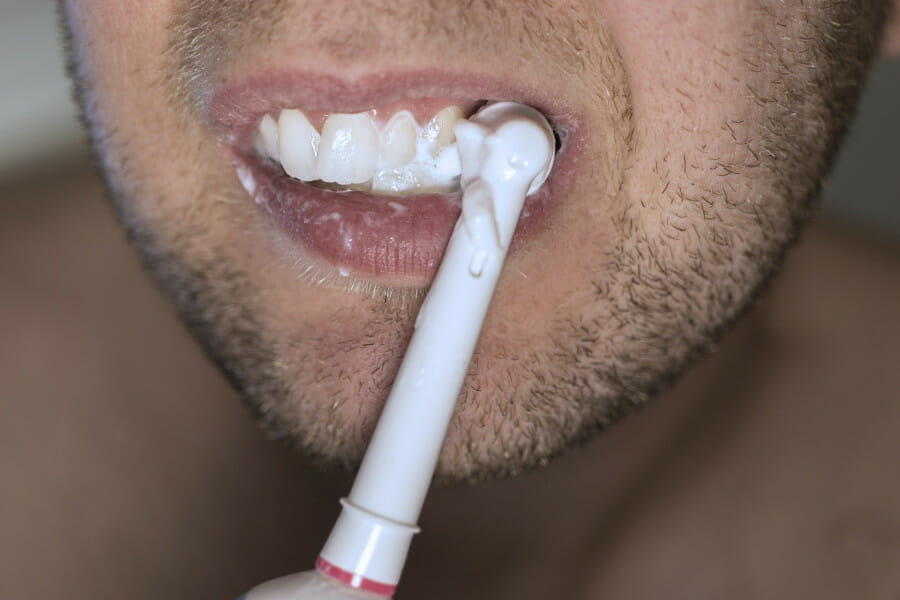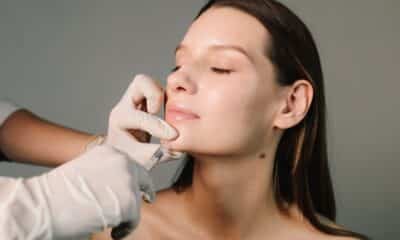Tips To Choose Best & Professional Teeth Whitening Program
Due to various genetic or lifestyle reasons, your teeth invariably get discoloured over time. A lot of people have now started using tooth whitening products, and this number is only going to increase further in the coming years.
Professional teeth whitening is an expensive process, so you must be sure if this is the treatment you want to undergo. What happens in an in-house whitening session, and what should you keep in mind before choosing such a program? Read on to find out.
In-House Or Professional Teeth Whitening
The total whitening procedure at a dentist’s office can take a couple of hours at most and may require checkups or home care subsequently. After sampling your teeth, the dentist cleans your teeth with pumice to remove plaque that’s sticking to them. Then, they isolate your gums, lips, and tongue from the whitening solution using barriers.
The whitening agent is typically in the form of a gel containing a bleaching agent like hydrogen peroxide or carbamide peroxide. After applying this, the dentist shines a laser lamp over your teeth to activate the peroxide. This process of applying the gel and using the light is repeated in three successive 20-minute intervals; once the optimum shade is reached, you can rinse off the solution.
Now with this overview of the process, here are some factors you should consider and do before fixing the appointment with the dentist.
How To Prepare For A Professional Teeth-Whitening Program?
1. Consult With Your Dentist
The best person to decide if you need a teeth-whitening program is your dentist. Fix a regular checkup with your dentist and have a complete oral examination of your teeth. They would know if you are eligible for teeth whitening, or if you need some other medication or treatment.
If your main goal is to remove stains from your teeth, you should know that a professional whitening program can cure only certain types of stains. Internal staining, caused by tooth decay or long-term usage of medication and antibiotics, cannot be removed.
Whitening can eliminate yellow or brown stains acquired through dietary habits, but deeper stains due to heavy smoking remain as such.
2. Are You Eligible For Whitening?
Apart from your need for a whitening treatment, some other specifications may prevent you from undergoing this procedure. For example, if you have oral cancer, excessively damaged enamel, or chronic sensitivity, the dentist is likely to advise against whitening.
All cavities should be treated, and gums should be made healthy again before whitening.
3. In-house Treatment vs. Self-Treatment
Once you know that you have to get your teeth whitened, you have a couple of options. Not everyone can afford expensive whitening treatments, so, recent developments in dental science have made it possible to perform a teeth whitening treatment at home. Home teeth whitening kits cost around half as much as a professional whitening treatment.
However, there are considerable differences between the solutions and chemicals and equipment used by a dentist and those you can purchase OTC.
For example, the peroxide concentration used by the dentist is much higher (25% to 40% concentration) than what you can buy from a pharmacy. Home treatments usually make your teeth one shade whiter, whereas professional treatment can brighten it up to eight shades.

4. Get Your Teeth Professionally Cleaned
Irrespective of which treatment option you choose, it is best to get your teeth professionally cleaned by a dentist. Any remains of tartar or plaque on your teeth can hamper the whitening operation, leading to poor results. At this stage, the dentist removes whatever surface stains they can, while also checking for gum disease, tooth decay, or existing cavities.
In general, you should maintain excellent oral hygiene by brushing and flossing your teeth every day and not just before undergoing a teeth whitening procedure.
5. Desensitize Your Teeth
Millions of people have sensitive teeth, and if you are one of them, professional whitening treatment will only make it worse. Use a desensitizing toothpaste (they typically contain potassium nitrate and strontium chloride) to cut off the nerve signal transmission from the sensitive teeth to the brain.
So, during whitening, you will not feel as much pain in these teeth as you would otherwise.
If you still feel pain in your sensitive teeth after treatment, check with your dentist what you should do. They may recommend continued usage of the desensitizing toothpaste or a more effective painkiller. Avoid cold food items for a couple of weeks after whitening.
6. How White Do You Want Your Teeth?
Based on the present condition of your teeth and your goal shade of white, there may be different number of shades in between. Always check with your dentist and come to a joint decision about the color of white you want to achieve. The dentist can then suggest a whitening process accordingly.
The more shades you have to cross, the longer and more costly is the treatment. However, note that any external appliance or dental work you have in your mouth – such as crowns and veneer – will not be affected by teeth whitening.
7. Risks Associated With Professional Teeth Whitening
The highly concentrated bleaching agent that dentists use on your teeth can have side effects if they come in contact with the other parts of your mouth like gums and even the teeth. Consider delaying your appointment if you cannot bear these pains in the next few days or weeks.
Gum irritation is a common effect that you may experience for several days after treatment, and this reduces when the peroxide concentration lowers or when the bleaching stops.
Your teeth, particularly the front teeth, will be extremely sensitive for a couple of days following the procedure, and you may experience spontaneous shooting pains called zingers.
Are You Ready For Teeth Whitening?
Teeth whitening is a temporary fix; you have to keep repeating the process every six months or so and maintain good oral practices daily. The next time you visit the dentist, keep these options in mind to prepare yourself for the treatment.
Professional whitening is highly recommended for better and safer whitening of your teeth, but if it means stretching your budget, you can always try out diy teeth whitening procedures yourself.
















